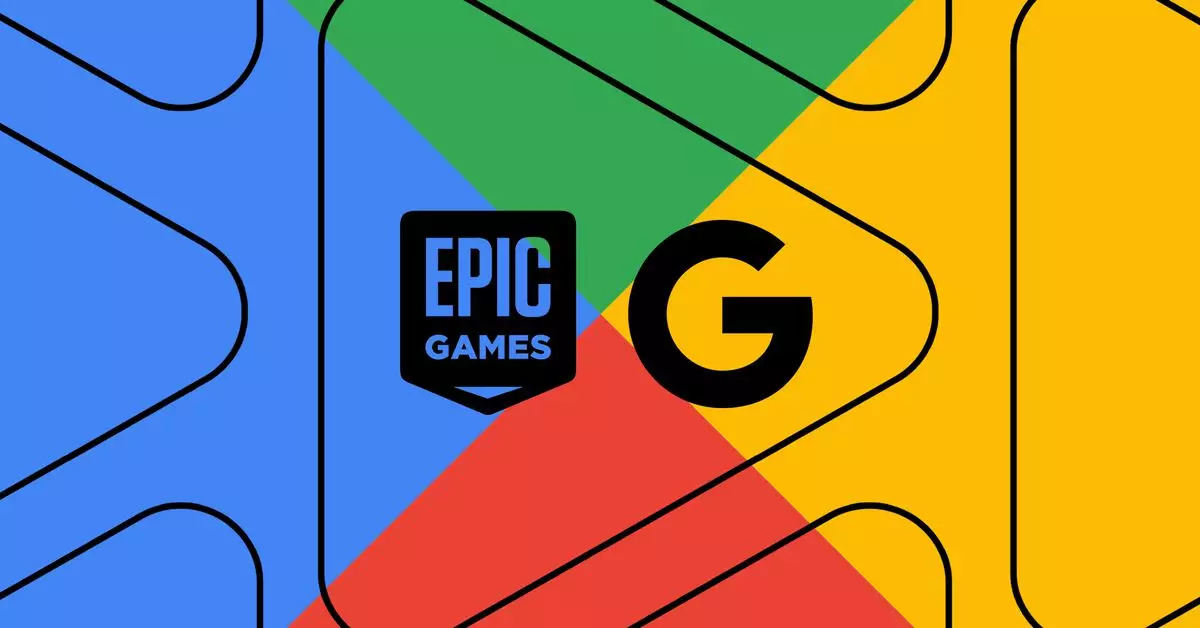The mobile gaming landscape is witnessing a seismic shift as Telefónica, a prominent telecommunications giant, partners with Epic Games to preinstall the Epic Games Store on a variety of new Android devices. This collaboration marks a significant milestone that not only bolsters Epic’s visibility but also raises pivotal questions regarding the future of app distribution on mobile platforms. As the game provider seeks to challenge the dominant play of Google on Android, the implications of this partnership could resonate through the tech and gaming industries for years to come.
Telefónica, known for its extensive telecommunications prowess across markets such as the UK, Spain, Germany, and Latin America, is gearing up to introduce the Epic Games Store on compatible Android devices, including popular Samsung models. This initiative is part of a broader strategy to place Epic’s offerings in front of millions of potential users, conveniently avoiding the barriers that have historically plagued alternative app marketplaces. By embedding Epic’s storefront directly within the operating system of new devices, this partnership signifies an inevitable evolution in how consumers access mobile games and applications.
Epic Games is no stranger to bold moves. The company has made headlines in recent years with its ongoing legal battles against Google, arguing that Google’s policies create an illegal monopoly over app distribution and revenue sharing. The significance of Telefónica’s preinstallation plan aligns with Epic’s goals to overturn traditional app store norms. With the Epic Games Store gaining ground, the prospect of its games, such as the global phenomenon Fortnite, being easier to access could redefine app engagement and monetization strategies within the mobile realm.
The backdrop to this partnership is a series of legal skirmishes that have cast a spotlight on the competitive practices within the tech industry. In recent litigation, a federal jury found in favor of Epic Games, determining that Google had indeed constructed an illegal monopoly around its app store ecosystem. This was a pivotal win for Epic, encouraging alternative methods for delivering apps and gaming experiences to users without the constraints imposed by platforms like Google Play.
Such legal victories have paved the way for collaborations like the one with Telefónica, proving that companies can effectively navigate the complicated waters of mobile app distribution without being hindered by perceived monopolistic behaviors. The implications of this arrangement extend beyond immediate gains for Epic—it represents a burgeoning trend where telecommunications providers are aligning with developers to create a more balanced competition within the app ecosystem.
Despite the promising outlook, challenges remain as Epic and Telefónica venture into this new territory. Preinstallation may facilitate user access, but it does not guarantee user engagement or sales. Consumers may still gravitate toward familiar choices, such as Google Play. Additionally, there is the underlying issue of consumer preferences—how will the gaming audience respond to a new platform that offers an alternate selection of games and apps? Success will rely heavily on marketing, quality of offerings, and user experience.
Moreover, the relationship with Samsung raises questions about manufacturer partnerships. With Epic recently suing Samsung on related grounds, it remains to be seen how this alliance will play out in practice. The dynamics between device manufacturers, telecommunications providers, and application developers could very well shape the future landscape of mobile gaming and app distributions as traditional roles are redefined.
The partnership between Telefónica and Epic Games is more than just a strategic alliance; it symbolizes a potential disruption in the mobile app marketplace. As carriers begin embedding alternative app stores onto their devices, the competition within the mobile gaming landscape could foster an environment ripe for innovation and change. For consumers, this means access to a broader array of gaming options, while for developers, it signals new possibilities for direct engagement and revenue models.
Ultimately, the evolution of the mobile gaming ecosystem is underway, challenging the dominance of established giants like Google. In these transformative times, the question remains: are consumers ready to embrace a new way of accessing their favorite games? The success of this endeavor will test the resilience and adaptability of both the gaming industry and the telecommunications sector as they champion new pathways for engagement in the digital age.

